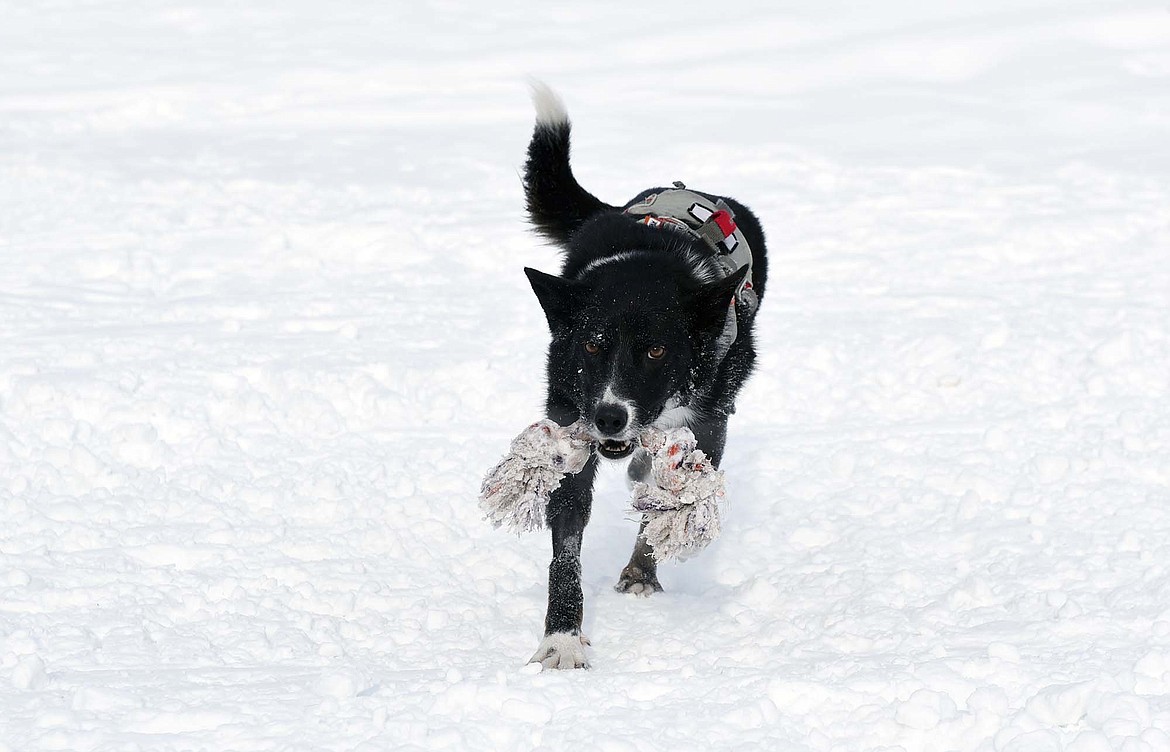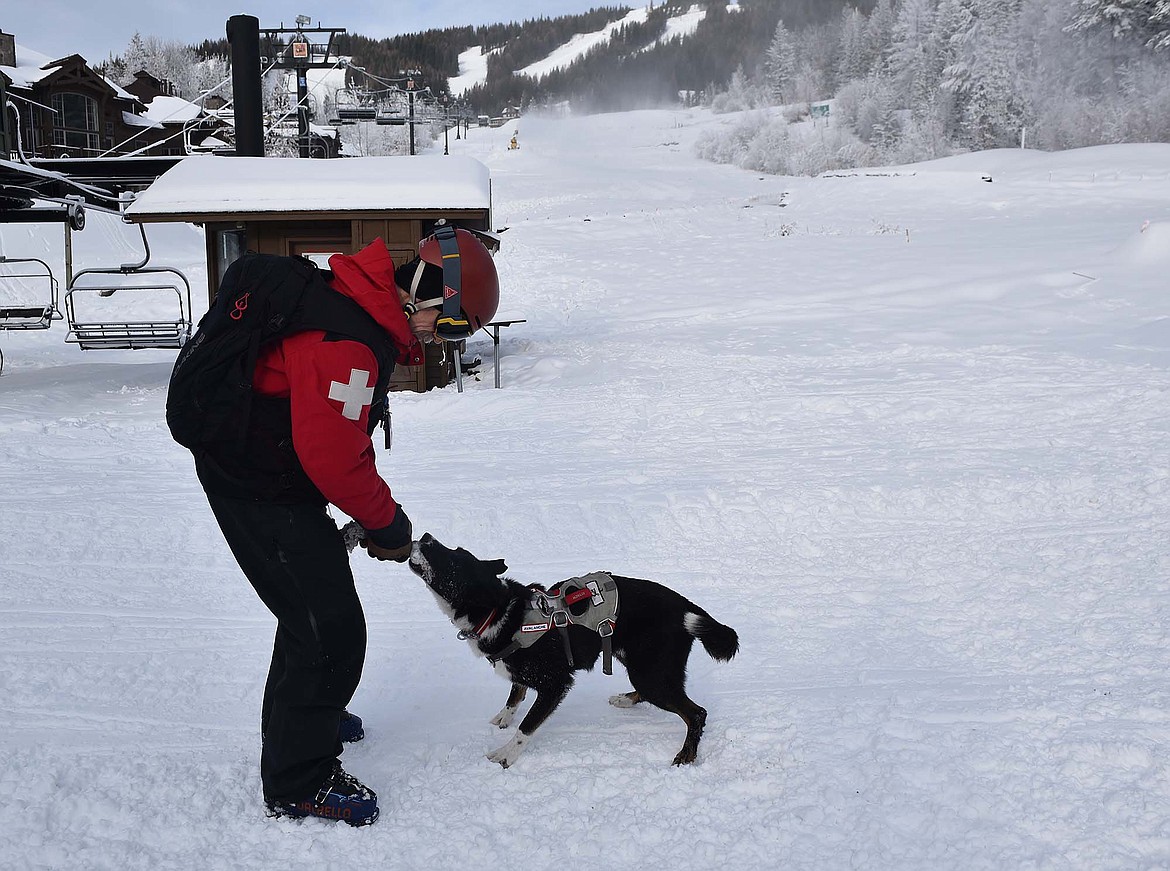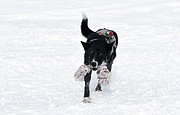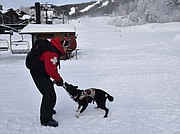Avalanche dog works on through cancer treatments
Jett, a 7-year-old smooth coat border collie, loves to bound through the snow playing a game of fetch with his rope toy.
He has the drive to work all day in his job as a certified avalanche search and rescue dog at Whitefish Mountain Resort. His handler and owner Lloyd Morsett says Jett really doesn’t slow down even now as he is undergoing cancer treatments.
“He’s responding well to the treatment,” Morsett said. “His energy level is great. You can only tell he’s getting treatment because of the bald spot on his arm where he gets his injections.”
“He loves to come to work every single day,” Morsett adds.
Morsett is the snow safety director at the resort and has been with the Ski Patrol since 2014. When Jett was about a year old, Morsett adopted him to be both a colleague on the mountain and family pet. Jett became the first avalanche rescue dog at the resort and is certified with the National Search Dog Alliance.
“The best thing about it is that I have a working partner who is also an ingrained part of my life,” Morsett said. “He and I are a team. Handlers and dogs are together from when their puppies to past the time they retire.”
Jett was recently diagnosed with B-cell lymphoma after Morsett’s wife found a lump on his neck. A biopsy revealed the cancer diagnosis and Jett recently entered the second cycle of chemotherapy treatment at Glacier Animal Hospital in Columbia Falls. The treatment lasts 19 weeks and should give Jett more time working on the mountain.
While the treatment is going well, it also came at a cost of about $3,500, which Morsett is responsible for paying. All owners of the avalanche dogs pay for the annual costs of keeping their dogs and the cost for training their dogs.
When the Ski Patrol put out a call recently to the community asking for donations to help pay for the treatment, the response was huge and the total amount was quickly covered. The resort also assisted by providing a donation through its fund with the Whitefish Community Foundation.
Even though Jett’s treatment cost is now covered, the donation fund is being kept open to assist with costs for the avalanche dog program. Cleo is the other avalanche dog that works with the Ski Patrol.
“The Ski Patrol has its own nonprofit and now the funds will be able to benefit the program as a whole,” Morsett said. “The cost of raising the dogs falls on the handlers for food and veterinary care. We do get some support from the mountain for equipment and training.”
Jett has quickly become a resort celebrity as folks have heard about his cancer diagnosis with passersby asking how his treatment is going. Morsett says it feels pretty amazing that the community stepped up so quickly to support Jett.
“It really reinforced that we’re doing something good,” he said. “I’ve helped train other Flathead County search and rescue dogs. It’s really about building a community for success in the long term of these dogs. It means a lot that people would give so generously.”
Jett is Morsett’s second avalanche dog. Morsett has spent 23 years as a ski patroller and previously had an avalanche dog while working in Colorado.
Jett was found wandering the streets of Mt. Pleasant, Utah, when he was rescued by the Western Border Collie Rescue and eventually found his way to Montana. Jett likes to fetch, he gets along with people and other dogs, and he’s not afraid to run alongside a snow machine or take a ride on the chairlift. Morsett says it takes the right personality to be an avalanche dog and Jett has it.
Avalanche dogs are invaluable for search and rescue situations, he notes.
“When it comes to avalanche rescue and if a person doesn’t have an avalanche beacon there’s no better thing that can happen, but to have a dog there,” he said. “There’s a significant amount of work that goes into training. It’s not part-time — this takes a professional level of discipline and commitment.”
Donations to assist with the avalanche dog program at the Ski Patrol can be made at thepatrolfund.org






